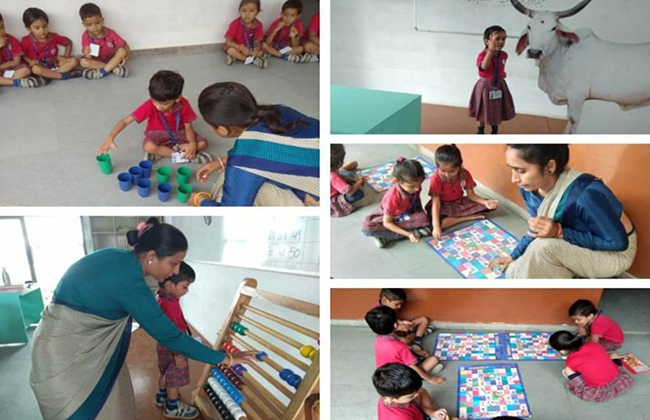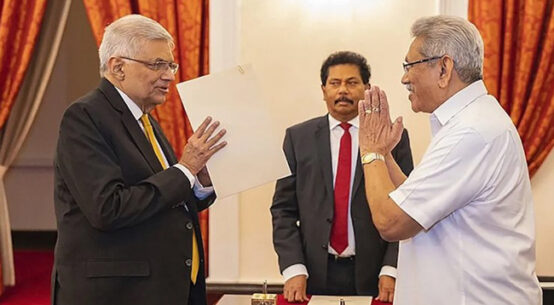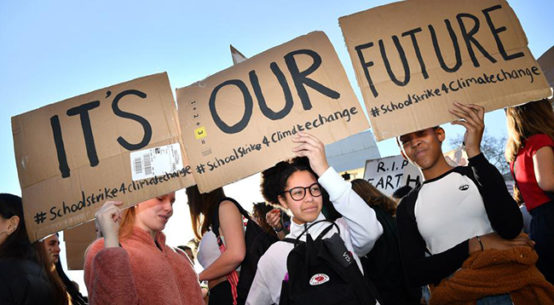
Inculcation of values at every level of education is very important. The teacher, the student and the educational institution have a close relationship with learning values. Teachers are the ideal artisans of values development and creation, educational institutions are unique factories of values practice and students are the products of those artisans and factories that are energized based on social and values.
Values are anything worth hoarding, more valuable than what one knows, is familiar with, or possesses. Sociologist David Popenoe said, “Values are the ideas of members of society about good-bad, right-wrong and desirable-undesirable.” Sociologist FE Spencer says, “Values are the criteria used to judge the goodness or badness of behavior and to choose between possible goals.”
Children do not carry values from birth. With age, values such as physical, mental and intellectual development also enhance through interaction with the natural and social environment. Besides, the special role of the teacher is very important in developing contemporary values among the students with the help of science-based teaching-learning process and self-discipline through various curricular and co-curricular activities prepared in a well-thought-out way like development in other areas. A teacher can enlighten and flourish the society by instilling values in the students. In schools, colleges, madrasahs and universities, students are constantly tested on values under the supervision of teachers through various tasks.
The teacher is the main focal point of value creation. The values of family, society and state are developed around him. The inculcation of values among students revolves around him. It is not possible to establish a sense of value in society without the teacher. No moral education can be complete without him. He is the one who teaches values and ethics.
The development trend of students’ quality of life is reflected based on their basic values, which include Personal and Physical values, Social values, Mental and Intellectual values, Moral and Humanitarian values. If these values are not awakened in each person as a human being, they cannot be considered as suitable animals for human society. Even if these subjects are not included in the curriculum, the teachers will teach the students relevantly by including them in the co-curricular subjects under the management of the educational institution.
What teachers can do to teach students personal and physical values and values is: a. He will provide health science knowledge to the students about the structure and functions of different organs of the body. b. Instill values in students by engaging them with personal feelings of understanding the significance of prior knowledge. c. Since personal and physical values are directly connected with the students’ daily behavior, the teacher will make them into students’ habits through practice and d. Through workshops and various cultural events, teachers will make them practice cleanliness in the classroom and school yard.
After birth it is the family members who take the responsibility of inculcating social values in the child. Family elders try to regulate the child’s behavior based on certain fixed values. In this process some social values are developed in the child. Modern thinkers have referred to certain universal social values. Inculcating such universal values requires systematic education. Teachers will try to inculcate social values in students through various curriculum and co-curricular programs. For example, teachers can teach social values to students by teaching compassionate behavior towards classmates, love towards juniors and respect towards seniors.
Besides, the ways in which teachers can inculcate intellectual values in students are: a. Prepare appropriate curriculum, develop thinking processes in students, c. Emphasis on formation of ideas rather than memorization of information during teaching, d. Focusing on how students can make connections between different experiences and ideas. e. To increase the passion for knowledge by studying other books besides reading textbooks.
Generally, the values that govern our moral behavior and are determined by individual and social norms are called moral values. What teachers can do to develop these moral values are: a. Will try to develop moral values of students through history, geography, arts etc. included in school curriculum, b. Various educators and education commissions are prescribing programs for moral education that teachers should follow appropriately. c. It is not enough to acquire knowledge about ethics in forming moral values, it is important to ensure that the knowledge plays a key role in controlling students’ behavior and d. Try to bring consistency in student behavior. Besides, the teacher can attach special importance to imparting human values education to the students, i.e; Comradeship feeling to classmates, helping the poor, doing his own work, maintaining good relations with parents and relatives, behaving well to neighbors, being respectful to teachers, caring for the helpless and the afflicted. etc. Human values will be taught by the teacher to the students. If the values inculcated by the teacher in the way of life of the students are practiced in their daily life, then they will become the valuable assets of the nation.
Suppose, a teacher is teaching students in his classroom, suddenly he sees that some of them have left pieces of papers and littered the floor. If he sends them to clean the floor, then the students will learn cleanliness and the school yard will not be dirty again. Similarly, if all teachers teach their students manners, modesty, politeness, good manners, humaneness and compassion with a positive attitude, then they can be awakened to human and social values.
It has also become imperative to impart value education among our future generations so that they are able to adapt to the changing situation as good citizens. And for the nurturing and development of values, teachers and the teacher society are needed to embody the values of ideals. By instilling values in his students, the teacher can in turn invigorate the society and the country with values.
However, personal, social, emotional, intellectual and human; No matter what kind of values we talk about, educational institutions, educational management and teachers should have that mentality in their hearts. In particular, teachers who play a role in the development of students’ values must also be competent. Because, the ideal teacher can develop morals in the society and inculcate human values by imparting good education. It is only natural that the teacher will sincerely appreciate the mental and physical suffering, pain, need and helplessness of the students and vow to excel in them.
Many people try to avoid teaching values by relying on curriculum and textbooks, which is not fair. Because, although the content of the textbook acts as a major factor in some cases, the teacher has a major tool in his hands, that is the teaching strategy. The teacher can easily teach social, moral and human values to the students by relating the content of his textbook to practical areas of real life. Students always remember their best teachers. They learn what they can be taught. So teachers can teach students all the values needed in life. Therefore, let us inculcate the personal, social, mental and human values of our children by raising the value of teachers and make the next generation a beautiful and civilized citizen.
Dr Md Mahmudul Hassan is the Principal of Daffodil International School, Dhaka and President of Bangladesh Smart Education Network (BdSEN)


